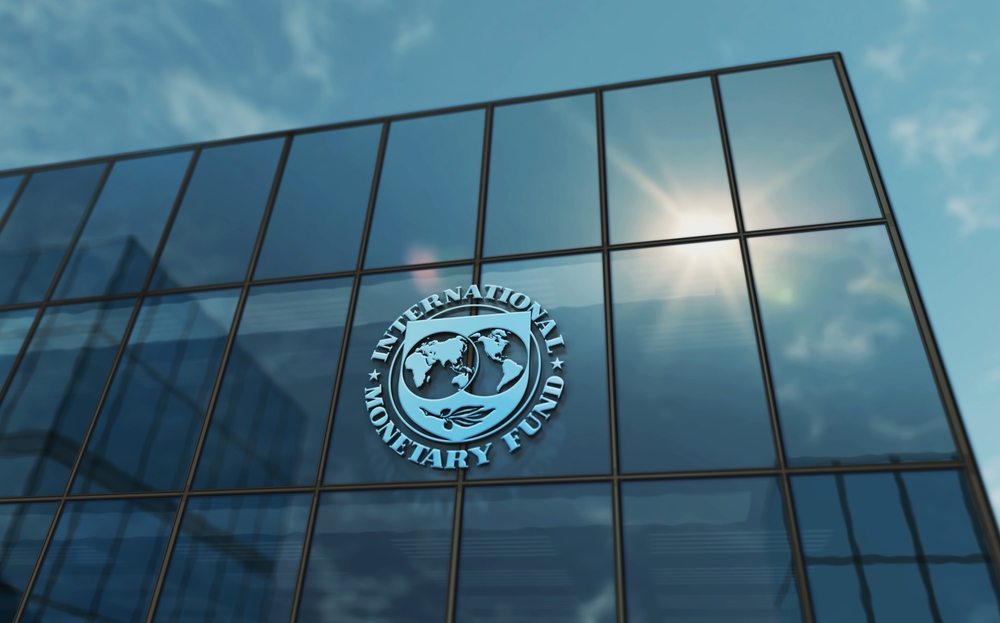ALBAWABA - The International Monetary Fund (IMF) has expressed optimism regarding global financial stability, given the improved economic conditions and a slowdown in global inflation since April. However, it has cautioned about the potential resurgence of concerns, indicating that risks remain high.
In its October Financial Stability Report, the IMF noted that the easing of concerns related to the banking sector paved the way for optimism about rapid inflation decline and a soft landing for the global economy.
Nevertheless, the fund warned of the possibility of a collapse in optimism when faced with adverse shocks such as sudden inflation acceleration, financial stability concerns in China, and uncertainty about global debt, which could significantly weigh on assets.

The International Monetary Fund (IMF). (Shutterstock)
The IMF also emphasized that the primary focus for the world is still to bring inflation back to the targeted level. Despite the slowdown in global core inflation so far this year, it remains elevated. The IMF projected a persistent decline in global inflation, from 8.7% in 2022 to 6.9% in 2023, and then 5.8% in 2024. The IMF retained its global growth forecast for 2023 at 3% in its October report, compared to the July estimates. However, it reduced the 2024 outlook by 0.1 percentage points to 2.9%, while the World Bank predicted a decline in the growth of Middle East and North Africa economies last week.
Risks Still Looming:
Despite the sharp pressures witnessed in the global banking system in March last year calming down, the IMF pointed out that deeper examination reveals that the presence of weak banks is still an issue. Therefore, it is crucial to ensure that banks have the ability to manage their risks effectively.
The possibility of prolonged higher prices also might impact both residential and commercial real estate sectors in some countries, especially those with a significant portion of variable-rate property loans. Moreover, weaknesses in the commercial real estate sector pose a substantial threat to the financial sector, and it has become increasingly evident this year that the sector will face a decline in financing by lenders in the years to come, according to the IMF.
Global interest rate increases also affect the cost of funding in emerging markets and developing economies, although most major emerging markets have maintained flexibility so far in 2023.
Nonetheless, low and middle-income countries are likely to continue facing financing challenges








